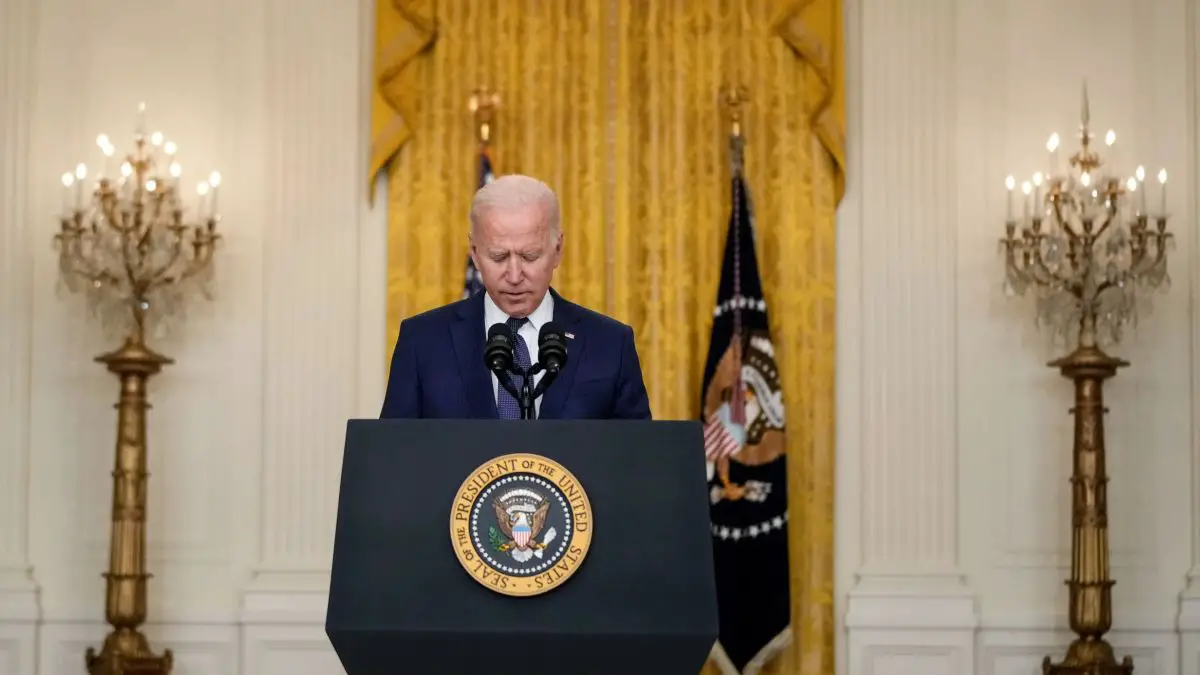In more ways than one, Biden has been a disaster not only for the United States but for the rest of the free world.
It was well known at the time that Biden’s botched and chaotic Afghanistan withdrawal in August of 2021 would have long-lasting and far-reaching negative ripples around the globe.
A weakened America running in retreat as 13 U.S. soldiers are killed by ISIS terrorists that quickly swooped in during the chaotic exit was just the beginning of the global unrest that would ensue in the coming months.
Now that the world and intelligence agencies have had almost a year to digest the withdrawal and watched world events unfold since that time, there are new revelations coming out regarding Russia’s invasion of Ukraine and direct lines to Biden’s botched withdrawal.
According to a new report and lengthy article from the Washington Post, intelligence reports indicated at the time in December and January that one of the primary reasons Russian President Vladimir Putin felt comfortable launching a full-blown ground invasion of Ukraine was due to Biden’s failures and inept leadership during the Afghanistan withdrawal:
The analysts said Putin calculated that any Western response to an attempt to reclaim Ukraine by force would be big on outrage but limited in actual punishment. The Russian leader, they said, believed that the Biden administration was chastened by the humiliating U.S. withdrawal from Afghanistan and wanted to avoid new wars.
The chaos and result of the Afghan debacle left U.S. intelligence in knots and strained relations with other global powers. With the Biden administration dead set on exiting a war, the appetite for entering another, Putin wagered correctly, would be next to nothing. As a result, the consequences other than the expected sanctions against Russian financial interests haven’t been enough to discourage Putin’s actions.
America warned for months that Putin was building up forces along the Ukrainian border, yet even within the NATO powers, there was a disagreement that a ground assault would be soon underway or ever truly materialize:
Some European officials were still unconvinced that an attack was coming. One told a reporter, “We have no clear evidence ourselves that Putin has made up his mind, and we have not seen anything that would suggest otherwise.”
“It felt otherworldly,” the British official said. In sideline conversations, U.S. and British officials were convinced of an imminent invasion, but “that just wasn’t the mood in the hall.”
Some in London began to doubt themselves, the British official said. “People were saying [we] got it wrong on Afghanistan. We returned and scrubbed the [Ukraine] intelligence again.”
The heart of the disagreement was the bungled Afghanistan exit which left the Biden administration embarrassed for getting the predictable outcome so wrong.
Rather than the months Biden claimed it would take for the Taliban to move into Kabul and retake the country, the fall happened in days if not hours. There was a split in intelligence reports with some officials warning of this result, though Biden later claimed no one foresaw this outcome, a claim at odds with his own Defense Department.
The “peace through strength” model is not a principle to which Joe Biden subscribes.
Afghanistan was an example of war through weakness which is what set Putin up for an open goal to invade Ukraine knowing full well the United States and NATO allies were weary and unwilling to fight back in a meaningful way.
This is partly why Biden would prefer everyone forget that the Afghanistan withdrawal ever happened and why he spent two weeks vacationing this year to avoid media scrutiny.
Biden’s foreign policy has been one of empowering Russia and empowering China while U.S. allies are left in weaker positions.
That is Biden’s legacy and all the high-fives and fake media praise won’t erase the reality of emboldening America’s adversaries for the next decade.
Donate Now to Support Election Central
- Help defend independent journalism
- Directly support this website and our efforts
